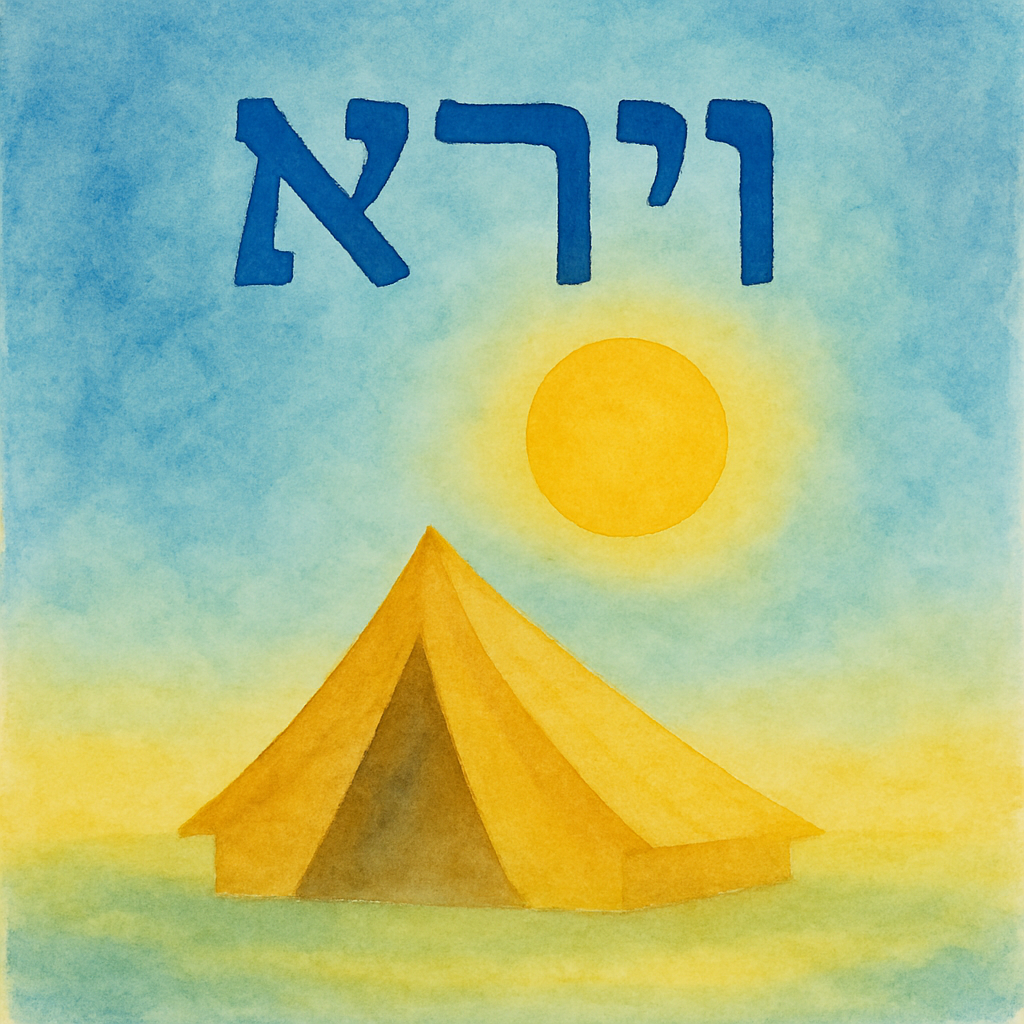וירא - Translation As Experience
This week in parsha וירא we meet Avraham sitting outside of his tent (בראשית י״ח). It is at the hottest part of the day (כחם ביום) when Avraham looks up to see three men standing before him. Even in his discomfort (he has just been circumcised), he demonstrates his ability to be an exceptional host. Our local community rabbi jokingly notes that Avraham is the first Chabadnik on Shlichut (known for their generosity and willingness to go above and beyond). Avraham sees three men before him and he enthusiastically greets them, running, and calling out to them so that he can provide them with a generous meal.
כחם ביום or μεσημβρίας - How do you experience the story?
The setting of this scene in the Hebrew is כחם ביום showing that we are the point in the day when it is the hottest, and the most uncomfortable when traveling, especially in the Middle East. The Aramaic translation of the text retains this meaning כמיחם יומא. The Septuagint though focuses more on the temporal (time of day) quality by using the phrase μεσημβρίας, which I would translate as “middle of the day.” Reading this in a temporal way is not entirely outside of the Jewish understanding; we see in the commentaries (רשב״ם and חזקוני) that the use of כחם ביום is intended to position the narrative in the middle of the day, in contrast to the subsequent scene with Lot / לוט, where it is Evening. I try to only bring languages into my blog that I have formally studied, but I did check the Latin: the Vulgate emphasizes the heat of the day in its translation fervore diei, which may help to support many of the historical translations aligning with the Masortic Hebrew text here.
In my view, emphasizing the experience of heat over position in time provides the proper emphasis and backdrop of the actions that Avraham undertakes. It is more relatable and human, it puts us into the narrative where we can feel the lethargy of Avraham as he musters the energy to host his guests. Perhaps it is also a fitting translation for the “first Chabadnik” since when it comes to finding the proper moment to serve G-d (such as Avraham serving his guests), Chassidim are fond to say that “here we have soul, not a watch”. Which, when you’re pushing the time for morning dovening (prayers), can be a useful perspective.
